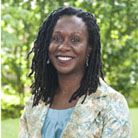It is a good thing when those of us in education are urged to be more thoughtful about what we seek to achieve through our teaching and scholarship. An analysis of the possible impact that education can have moves beyond the standard questioning of pedagogy, and speaks to the societal value of education as transformative, not just for the student and future graduate but also for society. Such higher order questions, as I like to call them, are not typically the stuff of faculty meetings, but they are at the core of a recent article by Professors Angela Mae Kupenda and Michelle Deardorff.
In their article, Negotiating Social Mobility and Critical Citizenship: Institutions at a Crossroads, the authors juxtapose two seemingly inconsistent struggles faced by institutions of higher education – improving the socioeconomic possibilities of our students versus preparing students for what they theorize as “Critical Citizenship.”:
“Preparing students to prosper in the present structure, while it may help them to individually succeed, is in a way teaching them to become participants in structures of continued oppression of others.” (339)
“Law schools provide tremendous opportunities for a concerned educator to prepare students to be active, engaged citizen students, able to challenge systemic forms of oppression and to negotiate and challenge a political process that maintains, often, a status quo of inequality.” (360)
This latter objective is, in the authors’ opinions, the ultimate value-add of education. Such conscious education is founded upon, “preparing students to challenge societal injustice and to be critical citizens who are willing to challenge a government that engages in abusive actions or is exploitative of its citizenry”(337). This thesis might be expanded to include corporate citizenship in a globalized world. I am not certain that these objectives are mutually exclusive, or that the latter is not sometimes achieved through the former, but there are serious policy, practice and ethical questions underlying and informing the worthwhile project undertaken by these authors.
Assuming for the moment that education does have the transformative force that these professors posit, one must take seriously their question. Do faculty and university administrators have institutional and societal goals in mind, goals beyond educating the individual student, when we offer educational programs? I hate to sound market-driven, especially when we are discussing education, but to ignore the role that increasing tuition rates has had in contributing to the consumer-like expectations of students in American higher education would be folly. It is not surprising that students, and parents, investing significant amounts of their income and savings in education expect a return that surpasses debt load in a reasonable amount of time. Further, as educators, especially those of us from non-traditional backgrounds, we must acknowledge that education, and the academy, have provided many of us with sustenance and the means to improve our lives, and those of our loved ones.
To position professors and higher education, including legal education, in this mix as fundamentally offering not improved socio-economic status (SES) and class mobility, but rather the tools to dismantle the proverbial master’s house is surely a risky thesis, at least in these times of economic uncertainty and output-based educational assessments (339, 360, 363). Nonetheless, these inspired professors, who demonstrate a seemingly unflappable faith in not just faculty members, but also pedagogy and the transformative potential of education, have a point.
In Negotiating Social Mobility and Critical Citizenship the authors explain their admirable “long-term goal of creating a more just society” (339) by reminding us of education theory ranging from John Locke’s comments in Two Treatises of Government to Paulo Freire’s Pedagogy of the Oppressed (345-46). I respect their thesis, although I suspect that the goal identified might not resonate with everyone, including some of the students they teach, many of whom likely aspire to live comfortable lives with high incomes.
Without wading into that argument – which is far too complex and robust for this short essay – there is a very real economic lens that need not present the incompatible binary that the authors suggest. One of the things I liked about the article is it led me to ask whether these objectives could be pursued simultaneously: can educational missions and visions (shared with readers of the article in detail) encompass both SES upward mobility and equality enhancing aspirations? Furthering one goal may not necessarily undermine the other. For example, one might think of a creative entrepreneurial graduate who starts a business that both reverses environmental degradation and makes that entrepreneur financially comfortable or even wealthy.
In addition to providing both institutional and professorial suggestions on how to support the critical citizenship of students, one of the most important contributions of this project is the way it forces us, as faculty and university administrators, to look inward and to ask ourselves if we are still willing to pursue, or even capable and equipped to tackle, the Lockean question of social justice or societal transformation (368-76). Do we take these parts of our missions seriously? And if we do, how do those commitments manifest in our institutions? Those are the tough questions, too easily lost in increasingly market-driven educational models. As the authors state, “fram[ing] our understanding of the academy” is essential (376). There may not be any uniformity, let alone consensus, here, but the conversation is not only worth having, but also is an essential part of how institutions might navigate the turbulent times we are in. After reading this article, I am inspired to move forward with vision, commitment, and resolve to ensure that the value of an education includes, but is not limited to, quantitative measures, and embraces qualitative societal enhancement.








